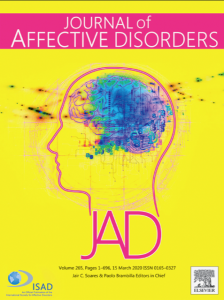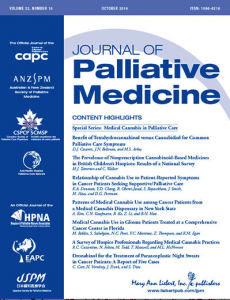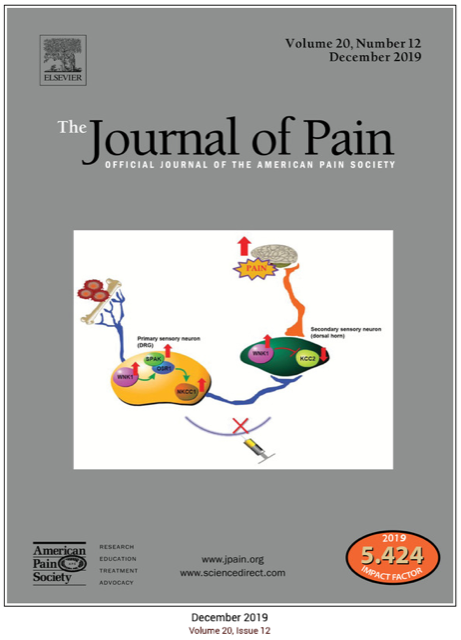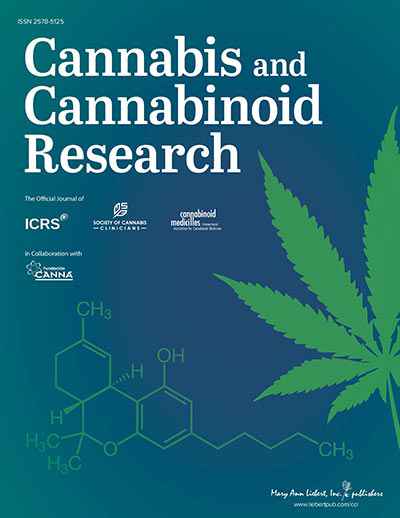Academic Research
Strainprint’s mission is to advance the scientific understanding of cannabis for medical and therapeutic uses.
If you are an academic researcher looking to access Strainprint’s rich patient data for non-commercial research and peer-reviewed publication, contact us.
A naturalistic examination of the perceived effects of cannabis on negative affect
Cannabis is commonly used to alleviate symptoms of negative affect. However, a paucity of research has examined the acute effects of cannabis on negative affect in everyday life. The current study provides a naturalistic account of perceived changes in symptoms of depression, anxiety, and stress as a function of dose and concentration of Δ9tetrahydrocannabinol (THC) and cannabidiol (CBD).
Benefit of Tetrahydrocannabinol versus Cannabidiol for Common Palliative Care Symptoms
To determine the relative contributions of tetrahydrocannabinol (THC) and cannabidiol (CBD) to patients' self-ratings of efficacy for common palliative care symptoms.
Design: This is an electronic record-based retrospective cohort study. Model development used logistic regression with bootstrapped confidence intervals (CIs), with standard errors clustered to account for multiple observations by each patient.
Short- and Long-Term Effects of Cannabis on Headache and Migraine
The use of cannabis to alleviate headache and migraine is relatively common, yet research on its effectiveness remains sparse. We sought to determine whether inhalation of cannabis decreases headache and migraine ratings as well as whether gender, type of cannabis (concentrate vs. flower), THC, CBD, or dose contribute to changes in these ratings. Finally, we explored evidence for tolerance to these effects.
Short and Long-Term Effects of Cannabis on Symptoms of Post-Traumatic Stress Disorder
Many individuals use cannabis to manage symptoms of post-traumatic stress disorder (PTSD), and evidence indicates that the endocannabinoid system represents a viable target for treating these symptoms.
A Large-Scale Naturalistic Examination of the Acute Effects of Cannabis on Pain
Cannabis use for pain relief is commonly reported, yet laboratory studies and clinical trials suggest that cannabinoids are weak analgesics, and it is unclear whether perceived reductions in pain from before to after cannabis use relate to factors such as dose, method of administration, phytocannabinoid content, or the age or gender of the user. We determined whether inhalation of cannabis decreased self-reported pain ratings as well as whether user gender, age, time, method of administration, tetrahydrocannabinol (THC)/cannabidiol (CBD) content, or dose of cannabis contribute to changes in these ratings. We also examined whether tolerance may develop to the analgesic effects of cannabis over time.
Acute Effects of Cannabis on Symptoms of Obsessive-Compulsive Disorder
No previous research has examined the acute effects of cannabis on symptoms of OCD in humans. Therefore, this study sought to: 1) examine whether symptoms of OCD are significantly reduced after inhaling cannabis, 2) examine predictors (gender, dose, cannabis constituents, time) of these symptom changes and 3) explore potential long-term consequences of repeatedly using cannabis to self-medicate for OCD symptoms, including changes in dose and baseline symptom severity over time.
Can't find what you're looking for?
Contact us about our custom research, specifically tailored to your individual needs.



